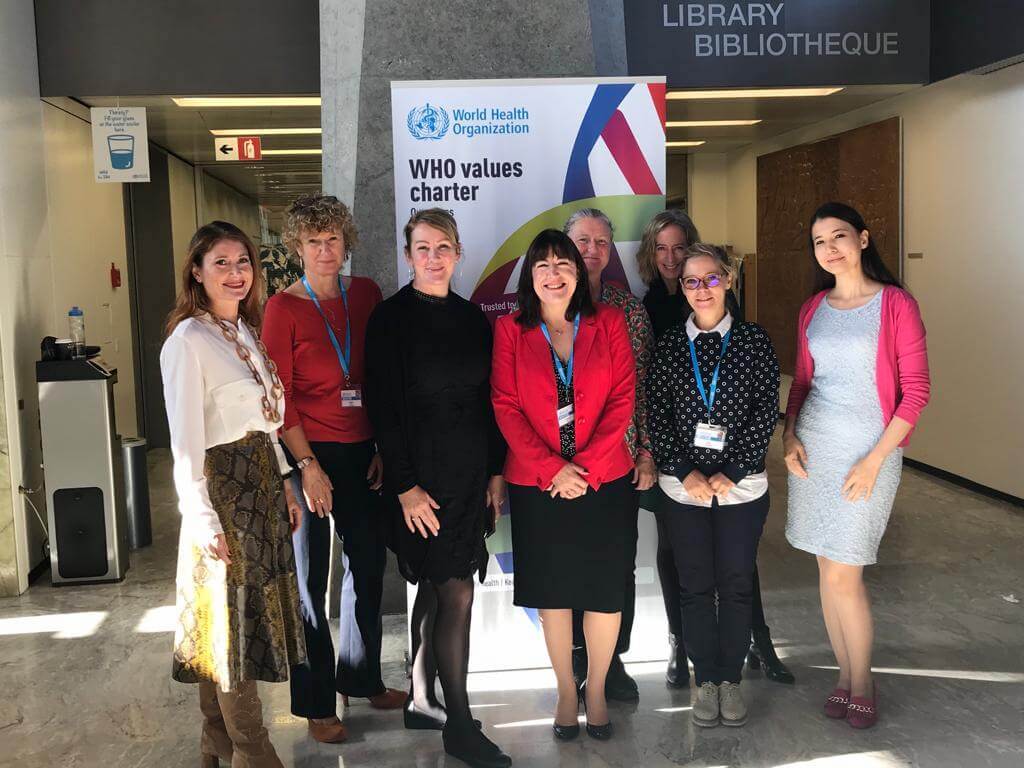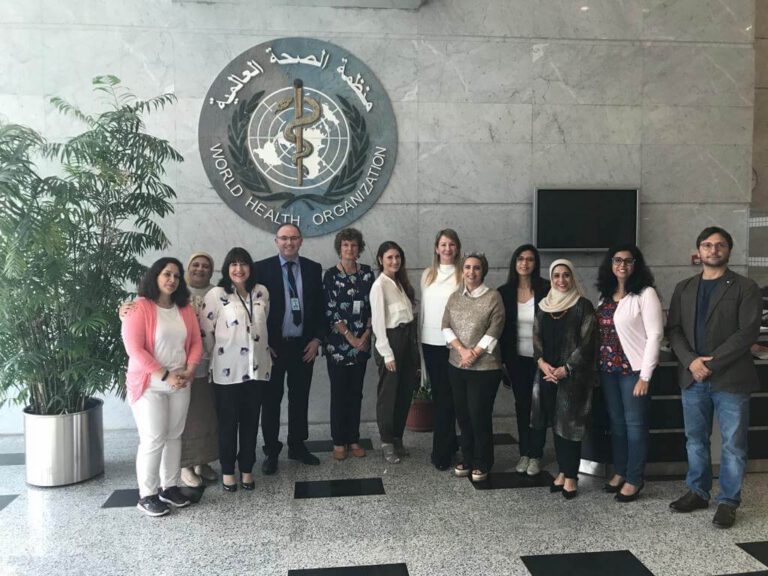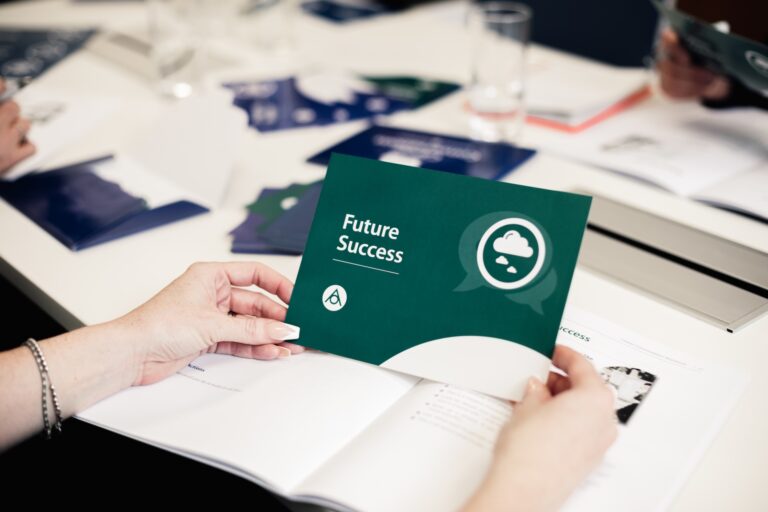We’ve had the pleasure of working with Sara Canna the Team Lead of Career Management and Development at The World Health Organisation.
Sara has been working to create a cultural change within the organisation. That change is to drive a shift in mindset and practices around career development. Her goal is to embed career development as a core pillar of the businesses vision, helping managers develop their skills to engage and retain talent.
We’ve taken a little time to get to know Sara better and to understand how her and her team in Geneva came to work with us. We also explore why creating a culture of career development is so important for them and why they chose our Certified Facilitator Programme.

Antoinette Oglethorpe:
I’m here with Sara Canna who is in career management and development for the World Health Organisation. So, Sara firstly, could you perhaps tell me a little bit more about the World Health Organisation.
Sara Canna:
WHO is a specialised agency of the United Nations which works with 194 Member States, across six regions, and from more than 150 offices, to build a better healthier future for people all over the world.
Our headquarters are located in Geneva where approximately 2,000 staff are based. We support members states in improving their health and the standards of health for their populations mainly by working with Ministries of Health and local partners.
Antoinette Oglethorpe:
So, I’m guessing you’re pretty busy with the coronavirus right now?
Sara Canna:
Yes! We deal with these kinds of emergencies all the time, and COVID-19 is the latest one. Geneva is the centre of the networking, discussions and the policy work. We then work a lot with the country and regional offices in order to implement the guidelines that we develop here in Geneva.
Antoinette Oglethorpe:
What is your role at WHO?
Sara Canna:
My role is within the global talent acquisition and management team. I look after the career development portfolio for the staff who are based in Geneva, and I also work closely with our HR counterparts in the five regional offices to streamline and harmonise our career development approaches for our global workforce.
Antoinette Oglethorpe:
What initiatives have you been working on?
Sara Canna:
Here in Geneva I contributed to develop a global mentoring programme and a coaching programme for staff to support them along their careers. We provide one to one career counselling and group career counselling. Right now, we are looking at how to put in place a global career paths framework for the entire organisation. Looking at the different technical and functional areas e.g. public health, administrative, management and leadership, we aim at providing support to our staff moving along these career streams. My role now is to put together a framework that helps people move forward in their careers.
Antoinette Oglethorpe:
That sounds like a great service. Not a lot of organisations provide all that support.
Sara Canna:
This is a recent development, with a real focus on careers, it’s something the organisation believes in as part of staff engagement, providing opportunities for staff and information on how to progress in their careers.
Antoinette Oglethorpe:
And what do you enjoy most about your role?
Sara Canna:
First of all I enjoy the contact with people. I like the idea that learning and development is contributing to developing people. I think that it’s fundamental to always learn new things and to develop oneself. I like creating new initiatives for example I’m introducing the topic of emotional intelligence in WHO through EQ cafes.
Antoinette Oglethorpe:
It sounds as though WHO is doing a lot to support HR, employees and to create a culture that supports learning and development.
Sara Canna:
Since the new director general was elected a couple of years ago, there has been a focus on engaging staff for true career development. The HR strategy is about retaining talent. So, it’s considered as a fundamental way to retain and engage talent and it’s been supported by senior management.
Antoinette Oglethorpe:
What would you say is the biggest challenge that you’re going to have to overcome?
Sara Canna:
The challenge, like for many other UN organisations, is that we are operating within a very hierarchical structure and people have to go through a competitive process when they want to move upwards in their careers. Career development is very much left to the individual to create his/her own opportunities to move within the organisation. It’s not a flexible and easy environment to move in.
Antoinette Oglethorpe:
What made you decide to run career conversations programmes?
Sara Canna:
The objective was to offer managers guidance on how to be better managers, managers who care about their staff development, seeing the development of their staff as a way to engage them and to provide them with opportunities to learn and grow in their careers. Creating additional tools for managers which they can use when they coach or mentor their staff. We have linked this approach to performance management. So, for example, we have included the careers conversations training for our new mentors, so they develop the skills needed and use the career conversation toolkit, ensuring a consistent approach across the business.
Antoinette Oglethorpe:
You’ve mentioned HR colleagues, Director General, Managers that’s a lot of different people. How did you get buy in from the all the different people that you needed?
Sara Canna:
It started last year. We ran a survey with staff to gauge how they see career development in the organisation. This was part of a big transformation project that ran across the whole organisation. One path was particularly focused on staff engagement. We had a task force that worked on career pathways. This transformation process created momentum for the organisation to be more open about career development and focus on enhancing the capacity of managers to support the career development of their staff.
Antoinette Oglethorpe:
So, it’s very much part of the strategy. You decided to go down the certified facilitator programme route. That means you now have in-house HR and learning professionals certified to deliver the programme. Can you tell me a bit more about that decision and what made you go down that route?
Sara Canna:
My objective was to have a professional qualification that could be recognised. That was the trigger to run the train the trainer course. Also, to promote it to other HR colleagues who are not necessarily working in learning and development, but who are HR officers and HR business partners. So that they can also have that developmental approach while they do their day to day HR work with their clients. I wanted to develop people to have a professional qualification in career development and who would all follow a sound methodology. The methodology has proved to be successful, innovative, practical and it works.
Antoinette Oglethorpe:
We ran two programmes – one in Geneva and one in Egypt. Can you tell me a little bit about your personal experience of the programme and any feedback you got?
Sara Canna:
The experience I had with the programme is that it was very practical, very easy to use and to follow. The toolkit and the philosophy behind it make it flexible. It can be step-by-step, and it also offers the opportunity to flex depending on the situation. I particularly appreciated the fact that the programme is very interactive. There’s very little theory and everything is based on practice. That’s what makes the difference.
Antoinette Oglethorpe:
I know you have now delivered your own workshops as a certified facilitator. How have those gone?
Sara Canna:
It went very well. We ran it with a group of 12 managers by following the facilitator’s guide step by step. Everything is so clearly laid out that it made it easy for us to deliver the training. Part of the train the trainer programme, is practice, which we did a lot. So we were already coming with experience which helped to have the confidence to deliver it on our own.
Antoinette Oglethorpe:
I loved watching you deliver and practice because you did such great things with the material. It’s actually quite humbling to see somebody take the content and deliver it in such a great way, with a new twist and your own personality. So what are your next steps as far as career conversations in WHO?
Sara Canna:
We now run it as part of our mentoring and our management development programmes. Those programmes will have a module on career conversations. We are identifying those managers who are more open to the topic so we can build on people who are already supportive.
Antoinette Oglethorpe:
What advice would you give other HR professionals who are trying to introduce career conversations and develop more of a culture of career development within their organisation?
Sara Canna:
First of all, there needs to be support from the senior management team. It has to be linked to the vision or the mission of your organisation. Otherwise, if you just start without that type of influence, it’s very difficult to break through and to change the culture.
Second, I’d say start with the people who are already open and willing to try this approach and to build, start small and run a pilot. Then use the positive feedback to garner support and investment for larger projects. We started small with a small group in the HQ in Geneva and we now aim at expanding the programme to the regions.
Third, link the initiative to other programmes such as mentoring, coaching, performance management and development, so it’s not a stand-alone workshop, but a tool that enables your organisation to move forward.
Antoinette Oglethorpe:
You’ve done an excellent job in role modelling all of that. You’ve taken the strategic imperative and made linkages so that it strengthens the case for it. And you are really starting to embed it. You started small, working with the people that are most receptive and now it is building in momentum.
Sara Canna:
It’s a great tool that builds on the philosophy of the growth mindset and the solutions focus. All these concepts are very well integrated, and the methodology is sound.
Find out more about our Certified Career Conversations Facilitator Programme



